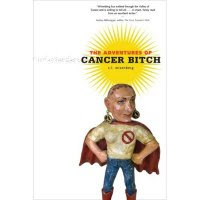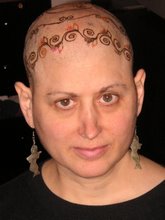Greetings, those of all religions and those of no religion. I guess I'm both, though I observe some holidays. Rosh Hashanah began Sunday night--so Sunday night was our new year's eve. We don't set off firework but we do eat. Of course. In our Ashkenazi (European) tradition, we eat apples and honey, because that's what you could get in early fall in Europe, from Russia to Great Britain. Those in the
Sephardic tradition eat dates, beans, leeks, beets, pomegranates, as well as apples. They also hold up the head of a ram or fish and say,
May I be a head and not a tail. Raise your hand if you do that. I would do it if I could borrow a ram, head still connected to its neck. But I don't think that's the point. Maybe vegetarians could hold up a head of lettuce. At least that's something positive that you could do with iceberg. It has no other function--contains a bit of crunch, is devoid of nutrients.
[What, me worry?]
But let us continue. An important aside: You will read that Ashkenzi Jews are those from Eastern Europe. This is usually wrong, and it matters when you're talking about diseases we Ashkenazim are more prone to because of all the inbreeding. The Sephardim are from Spain and Portugal, which outlawed Jews and Judaism just as Christopher Columbus (whom some claim was Jewish; why that first name? Trying too hard?) was sailing the ocean blue. (In 1492/ Isabella said, Get out, O Jew!) Those who did not leave either converted sincerely or insincerely. Just for good measure, the Crown and Church launched an Inquisition. In his photography book on Sarajevo,
Edward Serotta has a photo of Sarajevo Jews holding aloft their keys from Spain. They kept them in the family all these years. Which is a good thing, because now Spain says that if you can prove that your Jewish family was forced to leave, you can claim
Spanish citizenship. Which opens up the whole of Europe for you. Perhaps that's the best route to go for Syrian refugees.
Sephardic Jews speak or spoke
Ladino as a lingua franca. Ladino is to Spanish as Yiddish is to German. (Memorize that, it will be on the GRE.) Both written with Hebrew letters. Some German Jews will tell you that they are not Ashkenazi, and if they can trace their roots to Spain, they're correct. But often they're just ignorant. They think that Ashkenazi means Eastern European, which in the 19th century especially meant poor, immigrant religious Jew who embarrassed the cultivated Goethe-spouting German Jew. If your family spoke Yiddish, no matter how many generations back, then Congratulations, you have breast cancer. Not definitely. But you have a greater chance of carrying the
BRCA gene mutations. If you just clicked on BRCA, you will see that the Breast Cancer Resource Directory of North Carolina* refers to Ashkenazim as Eastern European in the title of the BRCA entry. It does clarify: mostly Jews from Germany, Poland, Russia. And the North Carolinians are correct in saying that 90 percent of US Jews are Ashkenazim. The rest are Sephardic, originally from Spain, France, Italy, North Africa, according to NC. I would add: Turkey, Greece (any who remained after Kurt Waldheim helped murder most of the Salonikan Jews), Holland, West Indies, Bulgaria (who saved its Jews, while throwing those from Macedonia and Thrace to the wolves), parts of the former Yugoslavia. Britain, friendly Britain, did not let us in for centuries. And then when Jewish war refugees started coming across the channel from Germany and Austria, the kindly Brits put them in camps alongside Nazis.
Ach, they all sound alike, no? Perhaps the Brits should be forgiven, since so many German Jews identified with Germany over Judaism. Which gave rise to this joke: Two German Jews have escaped the Nazis and are in exile in Paris. It's early 1940 and they're watching the French army go through maneuvers. One says to the other:
Ach, our army is so much better.
Meaning the German army.
Get it?
But the point. The point is that I went to
services Monday and then to the lake for
tashlich, where we throw our sins into the water symbolically.
.
We used to look like this:
but now we look like this:
People usually throw in crumbs or pocket lint (there was a discussion Monday of belly-button lint) I threw in weeds. I narrowed my sins to two: grasping and complaining. I chanted to myself that I was giving them up. No grasping, no complaining.
And so I could not complain, about people or situations. It has been very difficult. (I am stating a fact, not complaining.) I really really wanted to tell L. about a conversation I had with someone who is more neurotic than I am, and kept repeating himself, and worrying about a teeny tiny thing, and the point would be that deep down I'm saying, I'm not so bad, look at him, and there would be ever-so- slight contempt in my gut and face. But because I couldn't tell him, I didn't have that patronizing feeling. O, I had it for a moment, but it kept disintegrating. Which is a good thing. As for the grasping--that is more abstract, and I find that it is harder to avoid.
__
*Why pick on North Carolinians? Because their site came up when I googled the key words.































